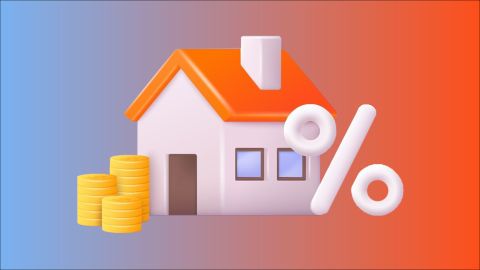Prospective homebuyers usually check numerous home loan options in the market before they zero in on a lender that suits their requirements. Choosing between fixed and floating interest rates can be quite tricky among the many dilemmas they face while opting for a loan.
It is imperative to weigh their pros and cons and then make an informed decision.
What is a fixed interest home loan?
A fixed interest rate home loan basically means the loan repayment will happen in equal installments throughout the given loan tenor. In other words, the interest levied on the amount you borrow will be constant, irrespective of the financial market fluctuations and policy changes. Usually, the principal is paid later in such fixed interest loan scenarios, and the initial EMIs are used to repay the interest.
Additional read: Did you ask your lender about your Home Loan reset clause
Pros
- Constant/ fixed interest throughout the tenor
- With interest independent of the fluctuations in the financial markets and policy change, the borrower can accurately budget their income and plan for the future
- Fixed interest rate provides a sense of certainty for the repayment of the loan
Cons
- Fixed interest rates are usually 1.5-2% higher than floating interest rates. This is mainly to negate the fluctuations in the market over the loan period
- In case of a decrease in the interest rate, the borrower still has to pay the fixed interest rate decided at the start beginning of the loan
What is a floating interest home loan?
This type of interest rate includes a base rate plus a floating component. This means that if the base rate changes, the floating rate will also vary.
Additional read: Dos and don’ts of investing in a property for great returns
Pros
- Floating interest rates, at the time of the loan initialization, will always be cheaper than the fixed rate, thereby saving money in the installments till the fluctuating interest rate goes above the fixed rate
- In case of a further dip in the market, the fluctuating interest rates would still go down, thereby decreasing the EMI amount
- If the floating interest rate rises above the fixed rate, it will be temporary and not for the entire tenor of the loan
Cons
- With the continuous fluctuation in the financial markets and the interest rates, it is challenging to plan your finances for a long term
- In case of market fluctuations, the borrower has to pay higher interest than the beginning of the loan
Making the right choice
To conclude, both fixed interest and floating interest rates come with their own set of risks and advantages. Choosing the type of interest rate is a personal choice. What works for one individual may not necessarily be the best choice for the other. A fixed-rate would be better suited for a person who prefers to plan the expenses and finances well ahead of time. This, however, comes with a higher price. Before making a decision, thorough research on fixed or floating rates from different lenders should be considered.
Going through the finer details of the home loan, the conditions and repayment options that precisely suit the borrower's needs should be chosen.
DISCLAIMER:
While care is taken to update the information, products, and services included in or available on our website and related platforms/websites, there may be inadvertent inaccuracies or typographical errors or delays in updating the information. The material contained in this site, and on associated web pages, is for reference and general information purpose and the details mentioned in the respective product/service document shall prevail in case of any inconsistency. Subscribers and users should seek professional advice before acting on the basis of the information contained herein. Please take an informed decision with respect to any product or service after going through the relevant product/service document and applicable terms and conditions. In case any inconsistencies observed, please click on reach us.
*Terms and conditions apply








